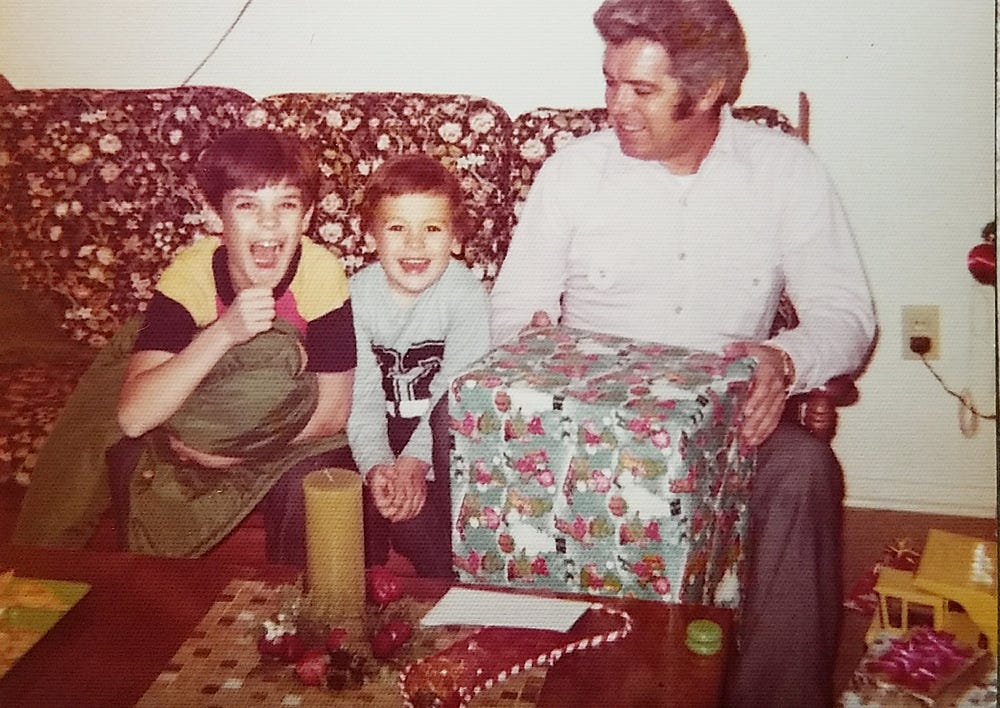Strength Through Life's Trials
 |
Life often presents us with moments of difficulty and pain. Yet, within these experiences lies a profound paradox: suffering can lead to spiritual growth. This paradox challenges us to see beyond the immediate discomfort of our hardships and discover hidden blessings within our trials. As we navigate through tough times, we gain insights that shape our character and enrich our faith journey.
Finding purpose in pain is not easy, but it offers transformative potential. When we view our struggles as stepping stones toward something greater, they shift from burdens to valuable lessons. It's a change in mindset that empowers us to find meaning even when circumstances seem bleak.
In this article, we'll explore how embracing adversity allows for personal and spiritual development. We'll discuss stories of individuals who turned their suffering into opportunities for growth and uncover strategies for reframing hardship as part of a broader journey filled with hope and renewed strength.
The Nature of Suffering
Suffering is a universal human experience that touches every life in profound ways. It serves as a reminder that despite our differences, we are united by the commonality of enduring hardships. Whether it's the loss of a loved one, financial struggles, or health issues, these challenges test our resilience and character.
The forms of suffering are diverse:
- Personal trials like career disappointments or broken relationships
- Natural disasters that devastate communities
- Internal battles such as mental illness or emotional trauma
- Systemic issues like social injustice and poverty
While each person's burden may differ, everyone carries their own weight on life's journey. Recognizing this shared experience encourages empathy and connection, allowing us to see suffering not merely as an affliction but as a meaningful part of our human experience.
Carrying One's Cross
The metaphor of carrying one's cross, rooted in Christian theology, illustrates accepting and shouldering personal hardships with grace and resilience. In contemporary life, it underscores that every individual bears unique struggles that can feel like unbearable burdens.
This concept invites people to shift focus from "Why me?" towards "What can I learn from this?" It's about finding meaning through perseverance and turning toward growth instead of retreating into despair.
 |
Personal Growth Through Trials
Uncovering Hidden Strengths
Hardships often reveal hidden reservoirs of strength, resilience, and creativity. Consider Thomas Edison, who famously said, "I have not failed. I've just found 10,000 ways that won't work." His journey demonstrates how perseverance amidst repeated failures can lead to brilliant success. Edison's relentless pursuit of innovation, despite numerous setbacks and challenges, serves as a testament to the power of maintaining a positive outlook and unwavering determination. Each setback he encountered was not an end but rather a stepping stone towards achieving his goals. His ability to view failures as opportunities for learning and growth allowed him to continuously refine his ideas and push the boundaries of what was possible. This mindset not only fostered his own personal development but also contributed significantly to technological advancements that have shaped modern society. Edison's story inspires us to embrace our own challenges with courage and creativity, recognizing that every obstacle is an invitation to discover new pathways and unleash our true potential.
Transforming Adversity into Inspiration
These examples show that while trials are undeniably arduous, they carry intrinsic opportunities for growth if approached with an open heart and mind.
Faith Journey and Blessings
In life's challenges, struggling often plays a critical role in deepening one's faith. When faced with seemingly insurmountable obstacles, people may turn inward and upward, seeking solace from a higher power.
A Story of Transformation
Joni Eareckson Tada's journey from a diving accident that left her quadriplegic to founding a global ministry is a remarkable testament to the resilience of the human spirit and the transformative power of faith. In 1967, at just 17 years old, Joni's life changed dramatically after she misjudged the depth of the water during a dive, resulting in a severe spinal cord injury. Despite the initial devastation and overwhelming challenges, Joni found strength through her faith and determination to turn her personal tragedy into a source of hope and empowerment for others. Over time, she became an accomplished author, speaker, and advocate for people with disabilities, using her experiences to inspire millions around the world. Her organization, Joni and Friends, has grown into an influential ministry that provides support and resources for individuals with disabilities and their families. Through her art, books, and public speaking engagements, Joni continues to share her message of hope, emphasizing that profound personal growth can emerge from adversity. Her story serves as a beacon of encouragement not only within the Christian community but also to anyone facing seemingly insurmountable obstacles in life.
Moreover, personal hardships can sharpen one's empathy towards others experiencing similar struggles. Through shared experiences comes mutual understanding—a pillar upon which communities can grow stronger together.
Testimonials: Stories of Triumph
Throughout history, people have risen above their pain to discover a renewed sense of purpose:
Viktor Frankl, a Holocaust survivor, developed his seminal work, "Man's Search for Meaning," encouraging us all to seek purpose amid adversity. In the harrowing environment of concentration camps, where despair and hopelessness were pervasive, Frankl observed that those who found meaning in their suffering were more resilient and likely to survive. He introduced the concept of logotherapy, which posits that the primary drive in human beings is not pleasure or power but the pursuit of meaning. This profound insight invites us to reframe our struggles as opportunities for growth and transformation. By identifying a purpose or cause greater than ourselves, we can endure life's challenges with renewed strength and hope. Frankl's work serves as a timeless reminder that even in the darkest moments, we have the capacity to find light by seeking significance in our experiences.
Maryam Rostampour, imprisoned for her Christian beliefs in Iran, became a vocal advocate for religious freedom, inspiring others with her faith and resilience. Her journey began in 2009 when she and her friend Marziyeh Amirizadeh were arrested for practicing Christianity, a faith that they had secretly embraced despite the risks associated with converting from Islam in their homeland. The two women endured harsh conditions in Iran's notorious Evin Prison, where they faced relentless interrogations and the constant threat of execution. However, their unwavering faith provided them with strength and courage to persevere. During their incarceration, Maryam and Marziyeh managed to turn their prison cell into a place of worship and hope, providing comfort not only to each other but also to fellow inmates who were drawn to their message of love and forgiveness. After an international campaign advocating for their release gained momentum, they were finally freed after 259 days. Following her release, Maryam continued her advocacy work by sharing her story globally through speaking engagements and writing, highlighting the importance of religious freedom and human rights. Her dedication has inspired countless individuals around the world to stand up against religious persecution and has shed light on the struggles faced by many who are denied the basic right to practice their faith freely.
These stories remind us that within our hardship lie opportunities for transformation if we choose courage over surrender, purpose over defeat.
Finding Purpose in Pain
Reframing Suffering
Shift your perspective to view challenges as opportunities for transformation. Like a butterfly emerging from its chrysalis, personal growth often requires struggle.
Practicing Gratitude
Identify small victories or moments of grace during testing times. This can shift your focus from what's lost to what remains or grows anew.
Self-Reflection
Take time for introspection. Ask yourself: What have I learned about my own strengths? How have my values been clarified through these experiences?
Embracing Hope and Resilience
Cultivating a resilient mindset is key to persevering through life's trials. This mental fortitude can be nurtured through practices such as mindfulness, meditation, and prayer.
To sustain hope:
- Regularly seek out reminders of progress and past triumphs
- Journal about victories achieved or lessons learned
- Engage with supportive communities who share similar experiences
Biblical Guidance for Overcoming Trials
1. Seek God's presence: "Draw near to God, and he will draw near to you." (James 4:8)
- Action: Set aside daily time for prayer and Bible reading.
2. Remember God's faithfulness: "Be strong and courageous... for the Lord your God goes with you." (Deuteronomy 31:6)
- Action: Keep a journal of God's past faithfulness to remind yourself during difficult times.
3. Focus on eternal perspective: "For our light and momentary troubles are achieving for us an eternal glory that far outweighs them all." (2 Corinthians 4:17)
- Action: Meditate on scriptures that emphasize God's eternal promises.
4. Practice thanksgiving: "Give thanks in all circumstances; for this is God's will for you in Christ Jesus." (1 Thessalonians 5:18)
- Action: Start each day by listing three things you're grateful for, even in hardship.
5. Seek wise counsel: "Where there is no guidance, a people falls, but in an abundance of counselors there is safety." (Proverbs 11:14)
- Action: Connect with a mature believer or pastor for spiritual guidance and support.
6. Serve others: "Carry each other's burdens, and in this way you will fulfill the law of Christ." (Galatians 6:2)
- Action: Look for opportunities to help others, even while going through your own struggles.
By applying these biblical principles and practical steps, you can navigate trials with faith, hope, and resilience, uncovering hidden blessings along the way.















